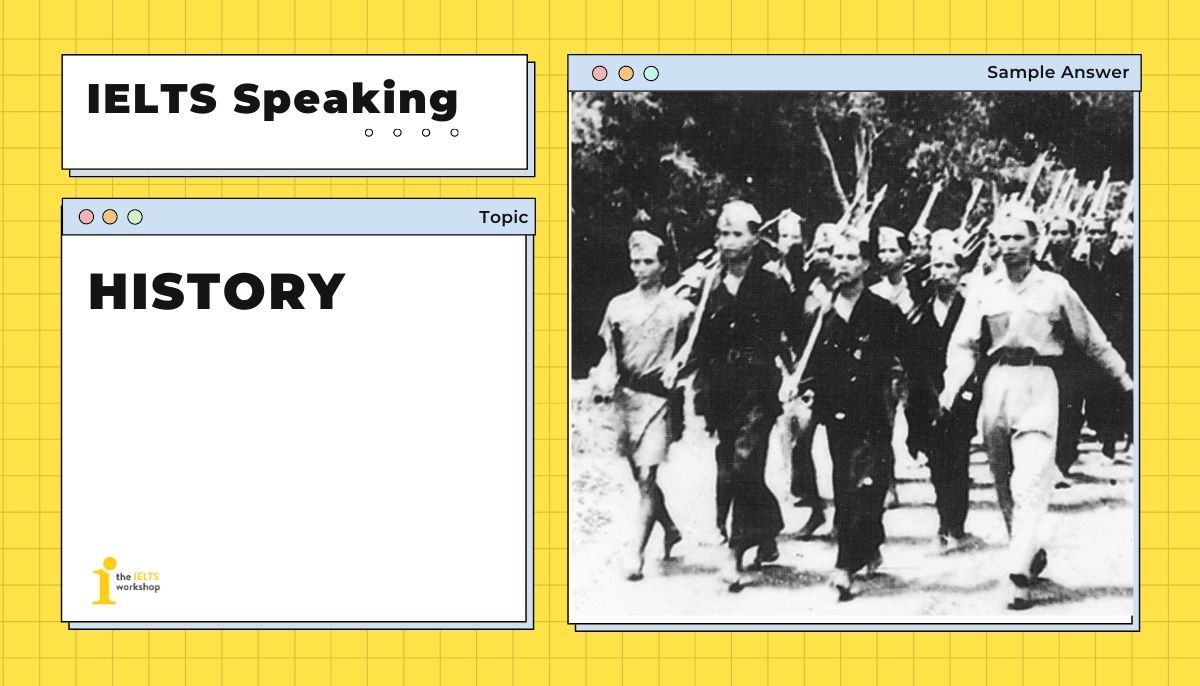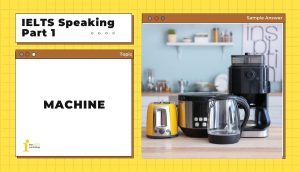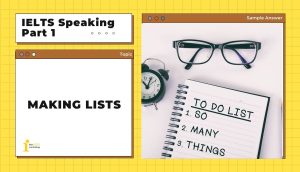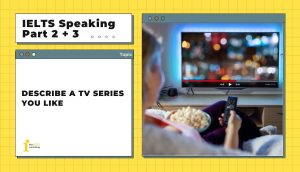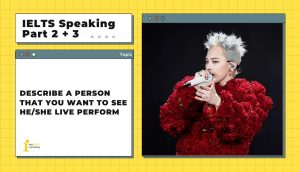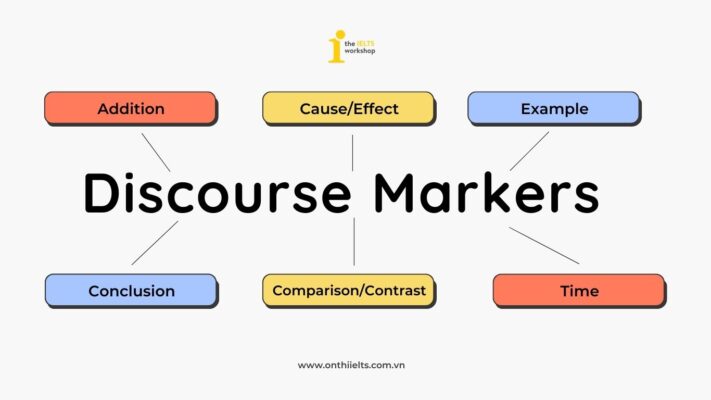History (Lịch sử) vẫn luôn là một chủ đề khó trong IELTS Speaking dù ở bất kỳ part nào. Các thầy cô tại The IELTS Workshop (TIW) sẽ giúp bạn giải đề tham khảo đi kèm bài mẫu cả 3 Part chủ đề History IELTS Speaking nhé. Tìm hiểu chi tiết trong bài viết dưới đây.
Tổng quan về chủ đề History IELTS Speaking
1. Các câu hỏi thường gặp
- Do you like learning about history?
- Have you been to many museums?
- Do you ever read books about history?
- Do you know much about the history of your country?
- How often do you watch historical movies?
2. Từ vựng theo chủ đề History
Các thời kỳ trong lịch sử thường có 1 cái tên, thông thường ta sẽ thêm “the” vào trước cái tên đó.
Từ vựng về một số thời kỳ lịch sử tại Việt Nam:
- The Hong Bang dynasty: Thời kỳ Hồng Bàng
- The Au Lac dynasty: Thời kỳ Âu Lạc
- The Chinese domination: Thời kỳ Bắc thuộc
- The Autonomous era: Thời kỳ tự chủ
- The Monarchical period: Thời kỳ quân chủ
- Decentralized period: Thời kỳ chia cắt
- Colonial era: Thời kỳ thực dân xâm lược
- Republican era: Thời kỳ cộng hòa
Một số thời kỳ lịch sử trên thế giới:
- The Renaissance: Thời trung cổ
- The Dark Ages: Thời kỳ tăm tối
- The Ice Age: Kỷ băng hà
Cách diễn tả thời gian bằng tiếng Anh
- The sixties ( những năm 60 – đề cập giai đoạn 1960 – 1969)
- The 1900s = the nineteen hundreds (thế kỷ 20)
- 1900s = the twentieth century (thế kỷ 20)
Bài mẫu chủ đề History IELTS Speaking
IELTS Speaking Part 1
Part 1 là những câu hỏi về cá nhân. Bạn có thể trả lời ngắn gọn 2 – 3 câu là đủ. Ví dụ:
1. Do you like to learn about history?
(#1) Well I think history is an area of my interest. I love to learn about the historical figures and historical events. So learning history can give me a better understanding of this.
IELTS là một bài thi về ngôn ngữ chứ không về kiến thức. Bạn hoàn toàn có thể trả lời rằng mình không thích Lịch sử/hoặc không có nhiều kiến thức về chủ đề này.
(#1) To be honest, I don’t take a keen interest in history. I think most of historical knowledge just go over my head, and I think I’m more of like an art person.
IELTS Speaking Part 2
Chủ đề thường gặp: Describe a historical event / period in your country
You should say:
When the event took place
How you learnt about this era
What happened
Why you find it interesting
IELTS Speaking Part 3
Những câu hỏi Part 3 sẽ liên quan tới chủ đề mà bạn được hỏi trong Part 2.
1. What do you think we can learn by studying events of the past?
Oh, a great deal of things. With the wisdom of hindsight, we can explain current situations and know what to do going forward. Everyone – I mean everyone – from ordinary citizens to policymaker, can benefit about learning from the past. Another benefit of studying historical events is that we can have a greater appreciation of the thing we have now. You know, we tend to take many thing for granted these days: peace, freedom, living without having to wonder if you can feed yourself tomorrow. I think if we look back at a time when humans used to live in austerity and nations were crippled by war and poverty, we would all be a little more content and happy with our life today.
- a great deal of: rất nhiều
- with the wisdom of hindsight: với kiến thức có được từ kinh nghiệm
- to tend to: có khuynh hướng làm gì
- to take sth for granted: cho điều gì là điều đương nhiên
- austerity (n) sự chặt chẽ
- to cripple (nghĩa bóng) làm méo mó
- content (adj) vui vẻ, hạnh phúc
2. What important events do you think might take place in the future?
Oh, I don’t know. Anything is possible. But if I were to speculate, I’d say the world is going to be even more integrated. Yes, we are seeing sign of globalization slowing and countries being less open in terms of trade, but I am willing to bet that eventually the world will evolve to a point where cross-border transactions and transport will be seamless. Technologies will obviously be more advanced and enhance our life even more, so that could mean a number of things: better health, better education, more surveillance, less privacy. Now is that ultimately good or bad? I guess we’ll just have to wait and see. Other than that, I don’t think there’s going to be any world war in the future. Maybe it’s just wishful thinking, but I believe countries have to learn to handle matters in a diplomatic way without resorting to violence.
- to speculate: suy xét
- integrated: được tích hợp
- to be willing to: sẵn sàng làm gì
- surveillance (n) sự theo dõi cẩn thận
- wishful thinking (n) mơ tưởng (niềm tin dựa vào ước muốn chứ không dựa vào thực tế)
- to resort
Để học cách xây dựng câu trả lời hoàn chỉnh cho phần thi IELTS Speaking, bạn có thể tham khảo khóa học IELTS Senior của The IELTS Workshop.

